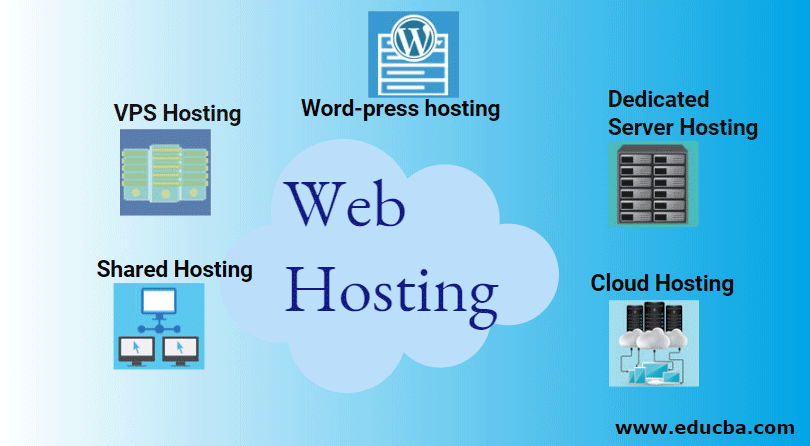
A proxy server is a computer network which routes requests to a website, and then returns the response. Every internet device has an IP Address, which uniquely identifies it in a network. Without an IP address, computers can't communicate with one another. Additional information about a person is also available in the IP address.
Proxy Servers are a type or web firewall.
Proxy servers are a type or web firewall that redirects traffic to secure an organization's network. It can be configured to block websites from accessing company network, or forward requests to external networks. Proxy servers can be used to help protect networks against hackers and viruses. These systems are also useful for filtering information for an organization.
These systems are more advanced than the packet-filtering types of firewalls, so they require more computing resources. However, they offer higher security, and offer detailed control over how applications are accessed on the system.

They cache content
Proxy servers cache content in a variety ways. One reason proxy servers cache content is to increase the speed of web pages. Proxy servers offer many benefits, not just the ones mentioned. A proxy server that is reliable will cache objects with a longer time to live (TTL) than the average. It will also cache objects at peak times. Multiple users can be served the cached object from one server without needing to re-download it.
The data stored in a proxy server's cache is accessed by clients when they request a page. Clients get the cached data back much faster than requests to the destination servers. Because the proxy server caches the data locally, it uses much less bandwidth that the destination server.
They can translate site content into local languages for clients
To localize your website in different language languages, you can use a proxy server. These servers are placed between the client's website and the source site and redirect traffic to the destination address. Translation memory stores the content and keeps it updated in real-time. The second web server receives the translated content and recreates the site's structure in the local language.
The use of a website translation proxy is a great way to speed up the process of translating a site. It can be used to reduce the cost of hiring a localization specialist. This allows translators and editors to focus more on the content than the site's layout. It helps to avoid bottlenecks and puts the linguists in charge of the process. Furthermore, a proxy is not dependent on a multilingual CMS. This reduces development costs.

They can enhance network performance
Using a proxy server can improve network performance by caching web pages and URLs. Caching reduces the time taken to retrieve a site from an original server and saves bandwidth. Caching also speeds up web browsing by reducing the amount of data that must be sent from one server to another.
Traffic volume on networks rises with an increasing number of internet users and websites. This can lead to overloading proxy servers in some cases. This overload can result in data packet loss, and slowing down internet speed. This overload can be reduced by using a proxy.
FAQ
Does A Good Portfolio Make Me More Likely To Be Hired As A Web Developer?
Yes. You must have a portfolio to be considered for a job in web development or design. The portfolio must show examples of your skills and experience.
A portfolio typically includes samples from your past projects. You can include anything that demonstrates your skills. Portfolios should contain everything, from wireframes, mockups, logos and brochures to websites, apps, and websites.
Which website builder should I use?
Start small to create a strong web presence. If you have the resources and time to create a fully-fledged website, go for it. Start with a basic blog, even if your budget is limited. As you learn how websites are designed and developed, you can always add more features.
However, before you create your first website you need to set up a primary URL. This will provide you with a point of reference when you publish content.
How do I create my own website?
It all depends on which type of website it is. Are you looking to sell products online, start a blog, or build a portfolio?
It is possible to create a basic website with HTML and CSS (a combination HyperText Markup Language & Cascading Style sheetss). It is possible to make a basic website with HTML and CSS. However, many web developers recommend using a WYSIWYG editor, such as Frontpage or Dreamweaver.
A freelance developer may be the best choice if you don't have any experience in designing websites. They will help you design a website that suits your specific needs.
A freelance developer may charge you either a flat-fee per project, or an hourly fee. The amount of work they do within a certain time frame will affect the cost of hiring a freelancer.
One example is that some companies charge $50-$100 for an hour. Higher rates will be charged for larger projects.
You can also find jobs on many freelance websites. You can search there before you contact potential developers directly.
How Much Does It Cost To Create An Ecommerce Website?
It depends on which platform you choose, and whether the freelancer is employed directly or through a service provider. eCommerce sites typically start at around $1,000.
You can expect to pay between $5000 and $10,000 for a platform once you have decided.
If you're planning on using a template, you probably won't pay more than $5,000. This includes any customizations you may need to match your brand.
What is a "static website"?
Static websites are those where all content is stored on a web server and can be accessed by users via their web browsers.
The term "static" is used to refer to the absence of dynamic features like changing images, video, animations, etc.
This type of website was originally created for use in corporate intranets. It has since been adopted both by individuals and small companies who are looking for simple websites that do not require any programming.
Static websites are becoming more popular due to their ease of maintenance. They are much easier to maintain than fully-featured sites with many components (such a blog).
They also tend to load faster than their dynamic counterparts. This makes them great for those who have slow Internet connections or users with mobile devices.
Additionally, static websites are safer than dynamic sites. It is difficult to hack into static websites. Hackers have only access to data stored in a database.
There are two main methods to create static websites:
-
Use a Content Management System (CMS).
-
Create a static HTML website
It all depends on what you need. If you're new to creating websites, I recommend using a CMS.
Why? Because it gives you complete control of your website. You don't even need to hire someone for help setting up your CMS. Upload files directly to the CMS.
Still, you can learn to code and create static websites. You will need to spend some time learning to program.
How much do web developers make?
Working on a website yourself will likely earn you between $60 and $80 an hour. You can charge more if you're an independent contractor. It is possible to charge between $150-200 an hour.
Statistics
- Did you know videos can boost organic search traffic to your website by 157%? (wix.com)
- In fact, according to Color Matters, a signature color can boost brand recognition by 80%. There's a lot of psychology behind people's perception of color, so it's important to understand how it's used with your industry. (websitebuilderexpert.com)
- Is your web design optimized for mobile? Over 50% of internet users browse websites using a mobile device. (wix.com)
- At this point, it's important to note that just because a web trend is current, it doesn't mean it's necessarily right for you.48% of people cite design as the most important factor of a website, (websitebuilderexpert.com)
- It's estimated that in 2022, over 2.14 billion people will purchase goods and services online. (wix.com)
External Links
How To
What is website hosting?
Website hosting refers simply to the place that people visit when they visit a website. There are two types of website hosting:
-
Shared Hosting - This is your cheapest option. Your website files reside on a server owned by someone else. Your customers' requests travel via the Internet to your server when they visit your site. The owner of the server then hands off the request to you.
-
Dedicated hosting is the most expensive option. Your website is only accessible from one server. Your traffic is private because no other websites have shared space on this server.
Shared hosting is cheaper than dedicated hosting for most businesses. You can use shared hosting if the company owns the server to provide the resources required for your website.
Both options have their pros and cons. Here are some key differences between them.
Shared Hosting Pros:
-
Lower Cost
-
Easy To Set Up
-
Frequent updates
-
It is available on many Web Hosting Companies
Hosting shared with others can cost as low as $10/month. However, this price typically includes bandwidth. Bandwidth refers to the amount of data you can transfer across the Internet. Even if you are only uploading photos to your blog site, high data transfer rates can still cost you extra.
Once you start, you'll quickly realize why you were paying so much for your previous host. Many shared hosts offer very little customer support. You'll be on your way after they walk you through setting it up.
It is important to find a provider that provides 24-hour support. They will attend to any issues you have while you sleep.
Dedicated Hosting Cons:
-
More Expensive
-
Fewer Common
-
Requires Special Skills
With dedicated hosting, all you need to maintain your website are provided. You won't worry about how much bandwidth you are using or how much RAM (random Access Memory) you have.
This means that you'll spend a bit more upfront. But once your online business starts, you'll realize you don't need any technical assistance. You'll quickly become an expert at managing your server.
Which Is Better for My Business?
It all depends on the type of website you are creating. Shared hosting is best for those who only need to sell products. It's very easy to setup and maintain. You'll probably receive frequent updates because you are sharing a server hosting many other sites.
However, dedicated hosting is the way to go if you want to build a community around your brand. You can focus on building your brand without worrying about handling your traffic.
Bluehost.com offers both. They offer unlimited monthly data transfers and 24/7 support. You can also register domain names for free.